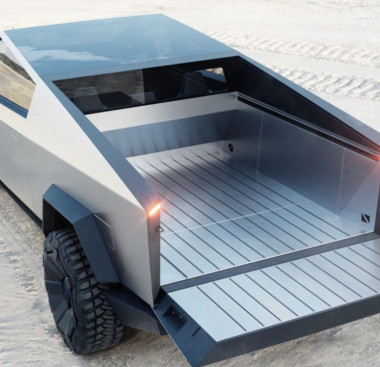The Easiest 20 Steps to installing a Roof Rack in a Tesla Model S
Installing a roof rack on a Tesla Model S can be a bit tricky, as the car doesn't come with pre-installed roof rails. Tesla offers its own roof rack system, which is designed specifically for the Model S. This can be a good option if you want to ensure maximum compatibility and performance. Some roof rack systems require drilling into the car's roof or using adhesive to attach the mounts. Be sure to carefully read the manufacturer's instructions and follow them precisely. However, with the right equipment and some patience, it's still possible to install a roof rack on your Model S.

Here are the following 20 steps to install a Roof Rack in a Tesla Model S, you can follow step-by-step:
- Purchase a roof rack that is compatible with the Tesla Model S.
- Gather all the necessary tools for installation, including a torque wrench, socket set, and screwdriver.
- Open the car’s trunk and remove the plastic coverings to access the mounting points.
- Identify the location of the mounting points on the roof of the car.
- Remove the plastic covers on the mounting points using a screwdriver.
- Place the rubber gaskets on the mounting points.
- Attach the roof rack to the mounting points and tighten the screws using a torque wrench.
- Ensure that the roof rack is level and centered on the roof of the car.
- Tighten the screws on the other side of the roof rack.
- Check that the roof rack is securely attached to the mounting points.
- Attach the crossbars to the roof rack using the provided hardware.
- Check that the crossbars are level and centered on the roof rack.
- Tighten the screws on the crossbars using a torque wrench.
- Repeat the process on the other side of the car.
- Adjust the crossbars to the desired position.
- Attach any accessories, such as a cargo carrier or bike rack, to the crossbars.
- Check that the accessories are securely attached to the crossbars.
- Load any cargo onto the accessories, ensuring that it is balanced and secure.
- Close the trunk and take the car for a test drive to ensure that the roof rack is securely attached and there is no wind noise.
- Enjoy your newly installed roof rack and the additional storage space it provides
Overall, installing a roof rack on your Tesla Model S can be a great way to expand your cargo-carrying capacity and transport outdoor gear. With careful planning and installation, you can ensure a secure and stable roof rack that doesn't compromise your car's performance or range.
Step 1
Purchase a roof rack that is compatible with the Tesla Model S.
Step 2
Gather all the necessary tools for installation, including a torque wrench, socket set, and screwdriver.
Step 3
Open the car’s trunk and remove the plastic coverings to access the mounting points.
Step 4
Identify the location of the mounting points on the roof of the car.
Step 5
Remove the plastic covers on the mounting points using a screwdriver.
Step 6
Place the rubber gaskets on the mounting points.
Step 7
Attach the roof rack to the mounting points and tighten the screws using a torque wrench.
Step 8
Ensure that the roof rack is level and centered on the roof of the car.
Step 9
Tighten the screws on the other side of the roof rack.
Step 10
Check that the roof rack is securely attached to the mounting points.
Step 11
Attach the crossbars to the roof rack using the provided hardware.
Step 12
Check that the crossbars are level and centered on the roof rack.
Step 13
Tighten the screws on the crossbars using a torque wrench.
Step 14
Repeat the process on the other side of the car.
Step 15
Adjust the crossbars to the desired position.
Step 16
Attach any accessories, such as a cargo carrier or bike rack, to the crossbars.
Step 17
Check that the accessories are securely attached to the crossbars.
Step 18
Load any cargo onto the accessories, ensuring that it is balanced and secure.
Step 19
Close the trunk and take the car for a test drive to ensure that the roof rack is securely attached and there is no wind noise.
Step 20
Enjoy your newly installed roof rack and the additional storage space it provides









